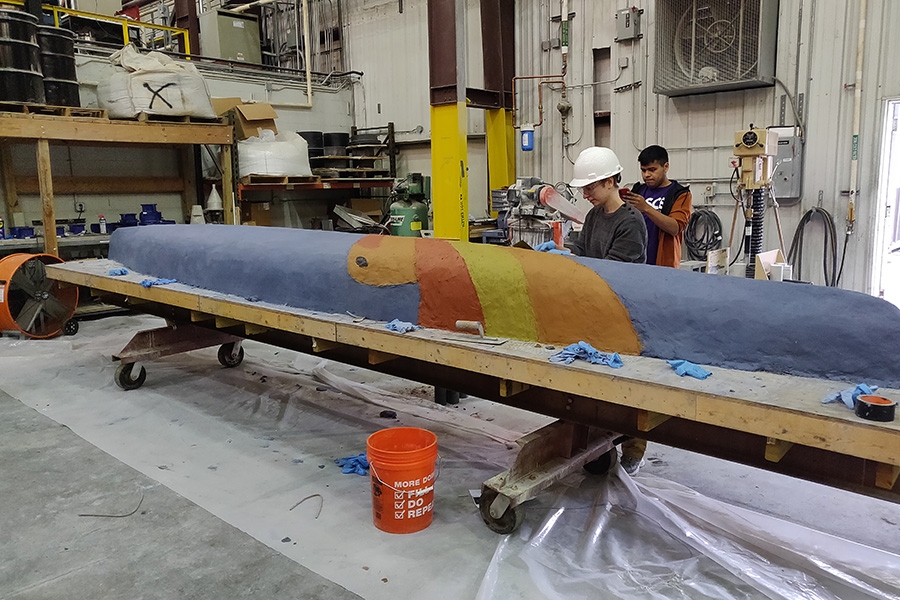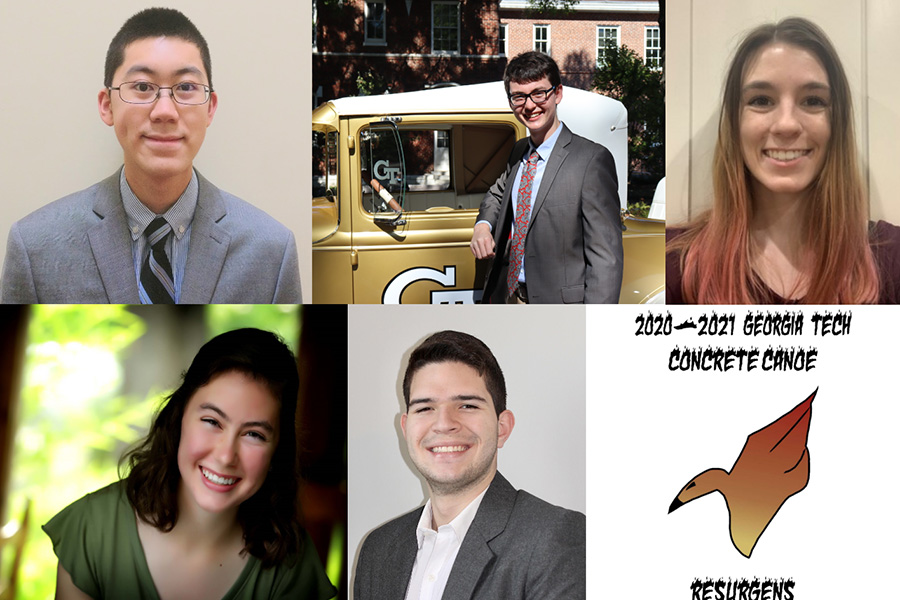
 |
| A composite photo of Georgia Tech's Concrete Conoe Team. Top row from left: Connor Szeto, Tobias Kopp and Molly Booker. Bottom row from left: Antonia Kopp, Carlos Cedeno, and a picture of the team's logo. The team chose the phoenix and named their canoe “Resurgens” after the city of Atlanta’s motto. |
Georgia Tech’s Concrete Canoe Team has won a wildcard spot to compete in a nationwide competition.
The American Society for Civil Engineers (ASCE) Concrete Canoe Competition will be held virtually this year from June 25-27 and hosted by the University of Wisconsin-Platteville. Georgia Tech is one of 24 teams to qualify for the Society-wide finals.
“Being able to participate in the national competition as a team is very meaningful, especially given the unprecedented circumstances we all have faced this past year,” said team co-captain Tobias Kopp. “The team worked throughout the year to manage the new competition requirements by both relying on our experienced members as well as involving as many new members in key decisions as possible.”
This is the first time that a team from Georgia Tech has advanced to the final round of the Concrete Canoe Competition. The competition challenges students to use their engineering prowess to design water-worthy canoes made out of concrete.
Traditionally, participating teams build and race their canoes during the competition. Due to Covid-19, this year's competition will be virtual, with scoring based on each team’s technical report and presentation. The report details the team’s proposed hull and concrete mixture design, structural analysis, construction, quality assurance and quality control techniques, project management, and sustainability.
Team co-captain Connor Szeto said a major challenge this year was a change to the rules for concrete mixture design. For safety reasons, the competition no longer allows teams to use expanded glass bead aggregates in their canoes.
“This material is one of the primary ways that we are able to reduce the weight of our concrete so that the canoe is able to float. This forced us to scramble to find alternative lightweight aggregates to replace the glass beads and test them in the Structures Lab,” Szeto said.
With Covid safety in mind, the concrete canoe team limited its in-person meetings over the last year, meeting only to make and test new aggregates and concrete mixtures.
“We used computational methods to optimize the concrete mix proportioning to get a mixture that is both strong and lightweight, without the need to physically test many samples in the lab. We obtained good results and plan on building on this design process in the future.”
The history of the Concrete Canoe Competition in the United States dates back to the 1960s, when a small number of ASCE student chapters began holding intramural concrete canoe races.
The first official ASCE Concrete Canoe Competition was held in 1988. In the years since, students' efforts to combine engineering excellence and hydrodynamic design have culminated in an advanced form of concrete construction and racing technique known as the "America's Cup of Civil Engineering."
Related:
- Tech Students Win 1st Place in Steel Bridge Competition
- Tech ASCE Chapter Named Distinguished Chapter for Region
- Psaltakis Selected as One of ASCE's New Faces of Civil Engineering
